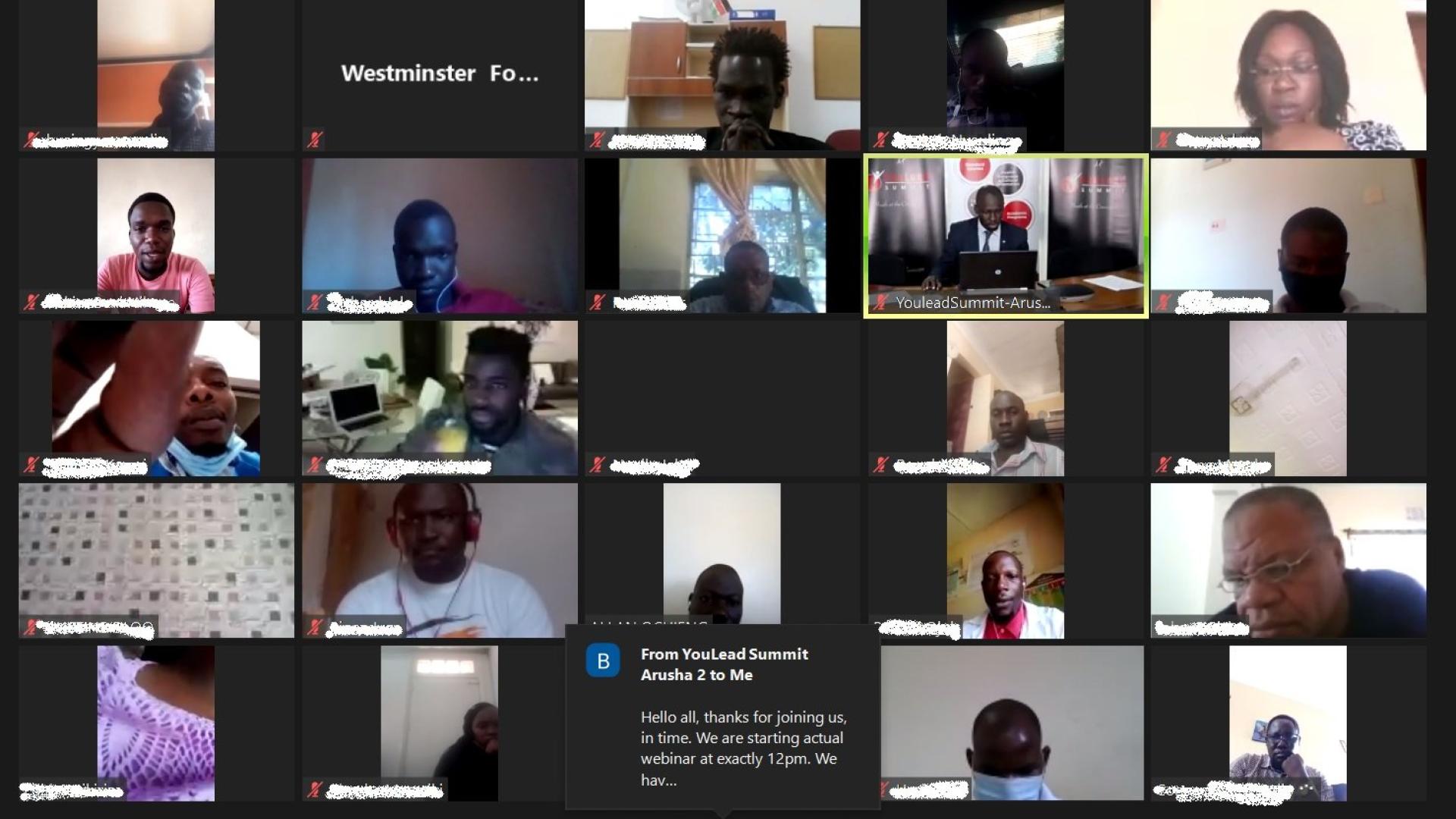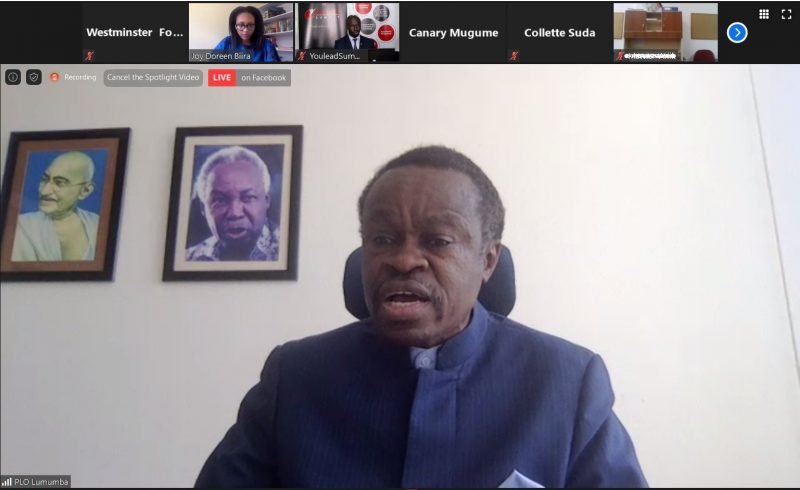East African youth call for involvement in navigating the COVID-19 response

“We want to be involved in the fight against the COVID-19 pandemic in East Africa.”
90% of young East Africans who responded to a survey on how COVID-19 has impacted their lives agreed with this statement.
COVID-19 has affected us all in different ways. In East Africa, where over 70% of the population are young people, the survey confirmed that the pandemic has greatly impacted their lives not only financially, but emotionally and mentally as well.
Through our DFID-funded Inclusive and Accountable Politics programme, WFD Uganda has been working with accountability champions in the Parliament of Uganda who can advance more meaningful participation of young people in response to the COVID-19 pandemic.
In a bid to meaningfully contribute to ongoing debates about how youth are affected and find ways to engage young people in the response to the pandemic, WFD and its partners YouLead Summit, Restless Development (Uganda) and Faraja Africa Foundation ran a regional study to gather evidence from youth across the East African Community.
Through the study, 450 young people reported that their lives have been significantly impacted. More than a third mentioned that their access to healthcare has been impacted while over half highlighted that their education and income has been affected.
Meanwhile, 90% of those who responded to study emphasised that they want to play an active role in the response against the COVID-19 pandemic.
A Ugandan youth pointed out in the study:
“In Uganda, young people are not given a chance to fully participate in this and their voice is not heard yet they could play a very big role in fighting this invisible enemy.”
Several participants referenced the government, saying that they would like the government to engage them. A Young East African respondent to the survey said:
“Since I am a health activist and a social media influencer, I would be grateful if the government involved young people like me who have skills and expertise in this area of communication and community mobilization.”
On 28th May 2020, WFD and partners hosted an online event titled ‘Youth can kick COVID-19 out of East Africa’. The event was attended by over 300 participants and had an online engagement in the 10,000’s. It spotlighted evidence from the regional study on the disruptions caused by COVID-19 to youth life and provided a platform to discuss what government, development partners and non-state actors can do to support a stronger youth ‘bounce back’ after the pandemic.
During the webinar, key speakers like Prof PLO Lumumba of Kenya, Assistant Commissioner Mondo Kyateka of Uganda and the Principal Secretary of Gender Prof Collete A. Suda of Kenya, among others, emphasised the importance of young people in the journey to overcome COVID-19.
The speakers pointed out how innovative young people have been and how they are a source of great ideas that can be used in the response to the pandemic – if governments in the region engage them.
“If we are going to kick out COVID-19 with its impact on the economy and the society, the youth must be intimately involved. We must now begin to make deliberate efforts even in critical areas like trade,”
said Prof PLO Lumumba, Kenyan lawyer, and inspirational speaker.

Prof Collete A. Suda also pointed out that young people must acquire the relevant skills and knowledge to be able to effectively participate in development, as their involvement in decision making is part of the democracy process.
The young people attending the webinar asked that government to provide them with funds to allow them to bring their innovations to life. Other youth also highlighted that they have been innovating but they have been turned down by Government which demoralises them.
In response, the speakers suggested young people document the issues discussed and the webinar and share them with their youth MPs across East Africa, asking them to bring bills that will push for youth participation in the post-coronavirus economy.
The survey report will be shared with the Ministry of Gender, Labour, and Social Development, the Ministry of Health, and the Parliaments in each of the East African countries.